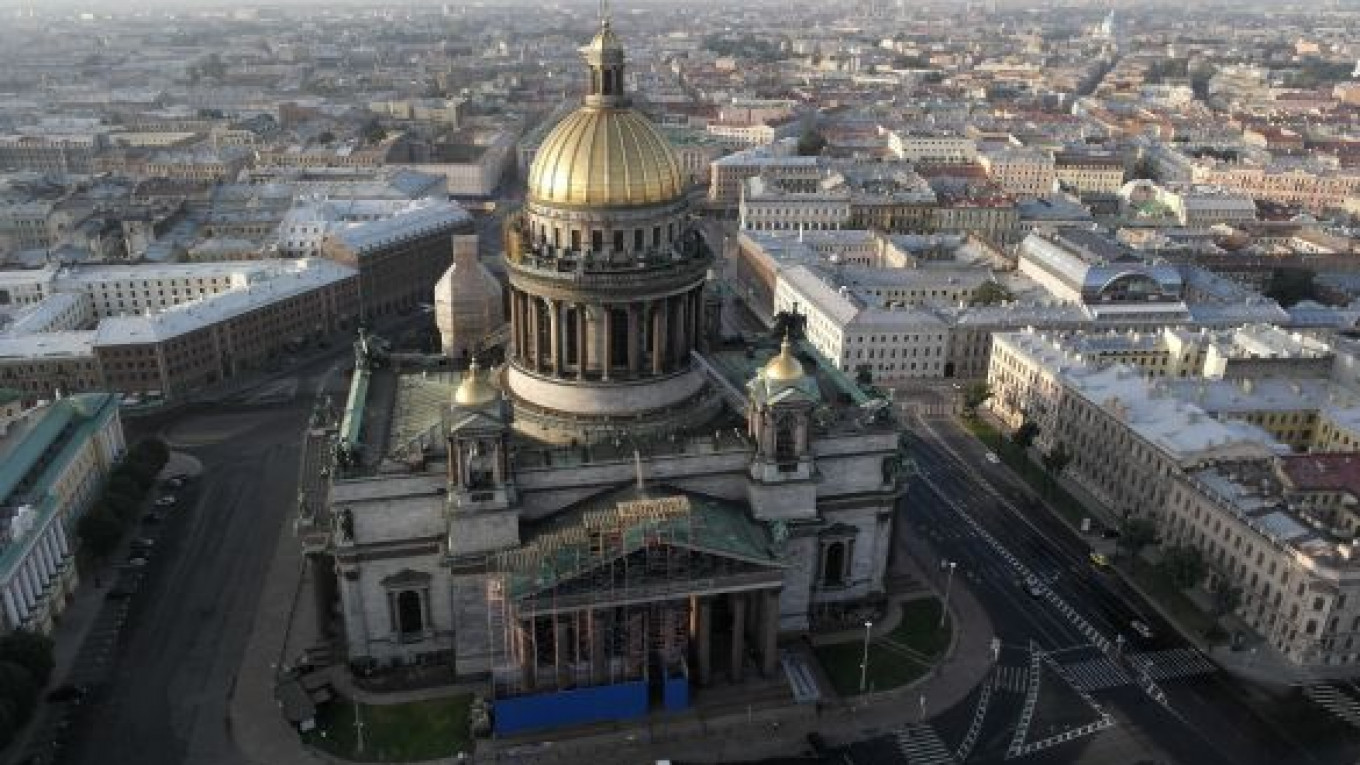WASHINGTON — Russia is doing relatively well but needs a strong global economy to sustain and improve its recent growth, making the upcoming Group of 20 Summit it is hosting in September critically important to the country, Sergei Kislyak, ambassador to the United States, told a conference in Washington on Friday previewing the upcoming summit.
"Being a country that has integrated into the world economy only recently, over 20, 22 years, we have a big stake in the vitality and health of economic relations in the world. We are interested in seeing to it that international trade conditions will be favorable for us as well. We certainly also depend on the markets outside of the country for our well-being, as we are an exporter of things," said Kislyak.
Being chair of the G20 this year is "a pretty unique opportunity not only to help, together with others, to form a consensus on current issues, but also to be able to contribute solutions, looking to our own problems and our own goals," Kislyak added, as one of two keynote speakers at the G20 forum sponsored by the Center for Strategic and International Studies, or CSIS, a nonprofit Washington think tank that focuses on global challenges and solutions.
Leaders of the top 20 major world economies, which account for roughly 80 percent of the gross world product and 80 percent of global trade, will gather in St. Petersburg for the annual G20 leaders' summit September 5-6. The goal is to find common ground and discuss how individual policies might impact upon other nations.
Experts at the CSIS forum said among the top priorities for discussion this year are energy and the need to act on fossil fuel strategies, development, and global trade.
"The G20 needs to be involved in corruption," said Caroline Atkinson, White House deputy US national security advisor for international economies adding that "it is an economic issue, and certainly an issue in cross-border development."
Russia's top priorities for the summit are economic growth and job creation, said Kislyak. "We have an ambitious plan in the years to come to create an additional 25 million jobs. That means restructuring old jobs and creating absolutely new ones. All of this requires a lot of investment, and therefore the creation of an environment for investment is also one of our national priorities."
"We are working hard on creating conditions that would be considered by other outside investors as good as in the 20 best countries in the world," Kislyak said.
The country's economic relationship with the United State is small, there being relatively little bilateral trade. But Russia is growing in importance on the world economic stage, said Gary Litman, vice president of international strategic initiatives for the U.S. Chamber of Commerce.
"Russia is unique, because it is not coming to the global economic system as an exporter, but as a buyer that has the means, the demand, the understanding to attract investment, buy capital goods, and upgrade its own economy. It is the only large country in the global economy today that brings demand rather than supply," Litman said.
"I think there is an interesting discussion to be had between the U.S. and Russia because of the scale that we share and because of the interesting combination of their need and our supply," he added.
For U.S.-Russian relations, the importance of the September summit is compounded by Russia's entry last August into the World Trade Organization. The G20 can "send a signal that we care about the WTO," said Atkinson.
The country enters the group at a pivotal time, as the world struggles to fully recover from the economic crisis of 2008, Litman said. The U.S. and Russia need to consider how to make the group more accessible to key members.
When U.S. President Barack Obama met with President Vladimir Putin in June at the G8 Summit in Northern Ireland, discussions clearly did not go well. The result for the two normally charismatic men was a painfully awkward display before cameras that showed a glaring lack of chemistry between the two.
Relations between the two countries have not improved since then. With the ongoing dispute about fugitive US intelligence contractor Edward Snowden's presence in Moscow, and differences over Syria and human rights, there have been questions about whether Obama and Putin will hold another one-on-one meeting at the G20.
White House Spokesman Jay Carney told reporters in Washington on Friday that Obama still plans to attend the G20, where he is scheduled to meet again with Putin on Sept. 5.
"The G20 is going to be a significant event in our economic discussions … I hope it will be another confirmation that there are issues in the world where we all stand to benefit more by working together than by working against one other. Economics today is one of these areas," said Kislyak.
A Message from The Moscow Times:
Dear readers,
We are facing unprecedented challenges. Russia's Prosecutor General's Office has designated The Moscow Times as an "undesirable" organization, criminalizing our work and putting our staff at risk of prosecution. This follows our earlier unjust labeling as a "foreign agent."
These actions are direct attempts to silence independent journalism in Russia. The authorities claim our work "discredits the decisions of the Russian leadership." We see things differently: we strive to provide accurate, unbiased reporting on Russia.
We, the journalists of The Moscow Times, refuse to be silenced. But to continue our work, we need your help.
Your support, no matter how small, makes a world of difference. If you can, please support us monthly starting from just $2. It's quick to set up, and every contribution makes a significant impact.
By supporting The Moscow Times, you're defending open, independent journalism in the face of repression. Thank you for standing with us.
Remind me later.






